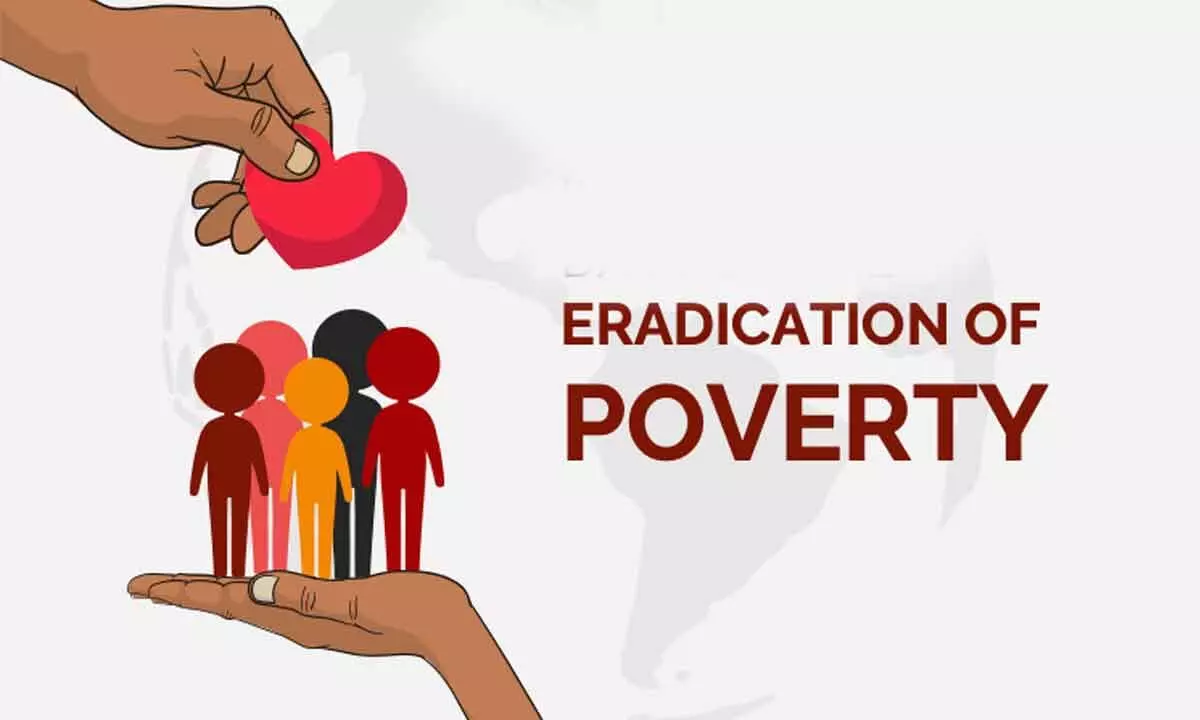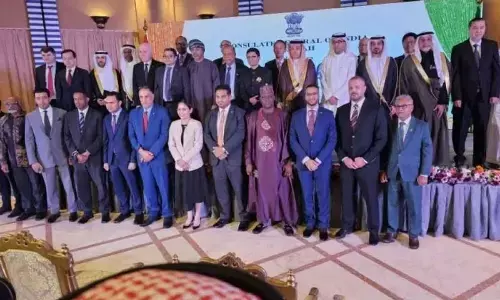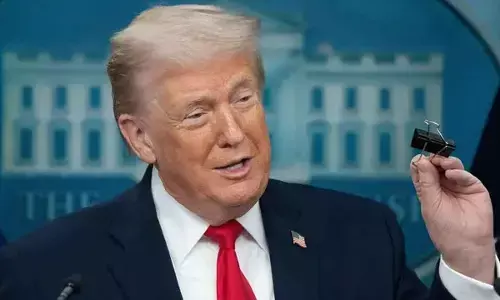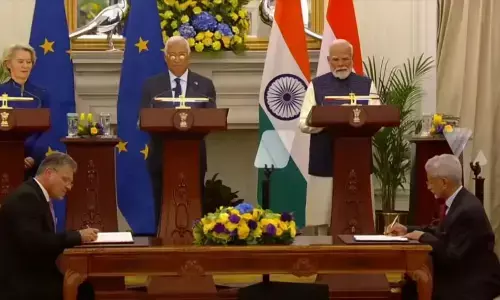Govts must walk the talk on poverty eradication

Poverty eradication becomes a major issue during every election. All parties shed tears that even after 75 years of Independence the country is facing the problem of poverty. Every party says they are the messiahs who alone can do away with poverty. They also come up with some freebies saying that they are aimed at fighting against poverty and empowering people to become economically strong.
But, once the elections are over, one hardly finds any focused strategy to eradicate poverty. One does not see any short-term, medium-term and long-term policies in that direction. Giving freebies, free ration, housing schemes cannot end poverty for various reasons. The governments should realise that ending poverty is a challenging task and cannot be done without having an inclusive policy and taking the cooperation of industry. It should be a well-coordinated well-strategised programme involving different segments. The bureaucracy, too, needs to have positive thinking and empathy and passion to eradicate poverty.
There should be a thorough discussion between the government and the organisations like the CII and Public Private People Partnership (PPPP) should be worked out. Every industry in the private sector and various other organisations earmark part of their revenue as CSR (Corporate Social Responsibility) funds. But then there is no proper study where and how they should be utilised. Everyone adopts their own individual schemes like distribution of wheel chairs, some scholarships or distribution of sewing machines, holding marathons or construction of some toilets etc.
Instead, if the government and the industry can work out a proper strategy and plan need-based schemes where the CSR funds can be used, it can certainly help in reducing poverty levels in the country. It requires short-term plans like skill development and long term plans like education and job creation.
There is any number of examples where job creation has certainly improved the economic conditions of BPL families and they are now slowly growing in terms of social status and trying to own certain comforts in life like buying a flat, some gadgets like ACs, owning two wheelers etc. This clearly shows that what is most important is regular employment so that they can move up the ladder and build wealth, invest on health and nutrition and live with dignity.
Hence, the centre should take the initiative of having not one but a series of brainstorming sessions with governments of all the states and the latter
should put politics aside, rise above political considerations, show magnanimity and come up with proper action plans. Once the process of poverty eradication starts showing results, they need not worry about votes as people will stand by them. Unfortunately, in India, political parties look at the human resources as vote bank and not as growth engines.
If this technique can be properly planned and executed, then poverty eradication can make significant progress at least in India by 2030, otherwise the goals will remain as talking points at various international forums without any result.
There is no point in giving lectures or fixing targets and listing out what needs to be done. The list at every international conference includes multifaceted approach to address the root cause of poverty. But, they will not elaborate. They will say need of the hour is to provide equitable access to health, education, basic infrastructure and other services. How? They will not explain. Empower women, girls and youth but how? There will be no clear route map.
Almost 700 million people around the world live in extreme poverty, subsisting on less than $2.15 per day. At current rates of progress, the world will likely not meet the global goal of ending extreme poverty even by 2030 or even by 2040.

















